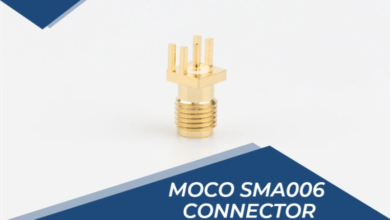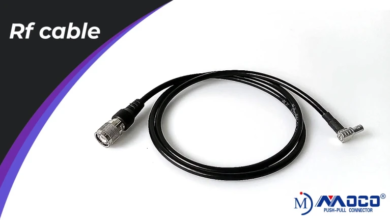A commercial electrician plays a crucial role in ensuring the safety and efficiency of electrical systems in business settings. These professionals are trained to manage the unique demands of commercial environments, from installing complex wiring systems to performing regular maintenance and repairs. Hiring a qualified commercial electrician is essential for compliance with industry regulations and for minimizing downtime due to electrical issues.
The complexity of commercial electrical work goes beyond typical residential needs. These electricians understand the intricacies of handling larger loads, specialized equipment, and the latest technologies used in commercial buildings. Their expertise allows businesses to operate safely, maintaining productivity while adhering to electrical codes and standards.
Understanding the importance of a commercial electrician can significantly impact a company’s operations. Investing in skilled electrical professionals ensures that businesses can focus on their core activities without worrying about potential electrical hazards or malfunctions.
Fundamentals of Commercial Electrical Systems
This section highlights the basic principles of commercial electrical systems, focusing on circuit design, applicable standards, and essential tools. Understanding these fundamentals is crucial for effective installation and maintenance.
Electrical Circuit Design Basics
Electrical circuit design in commercial settings involves planning systems that manage high power demands while ensuring safety and compliance. Key components include:
- Load Calculation: Electricians assess the load requirements to ensure circuits can handle the expected electrical draw.
- Circuit Types: Common types include branch circuits, feeder circuits, and service entrance conductors. Each has its specific function and configuration.
- Voltage Levels: High-voltage systems (above 600 volts) and low-voltage systems (below 50 volts) require different design considerations.
Choosing the correct wire gauge is important for mitigating heat buildup and power losses. Proper circuit design not only boosts efficiency but also minimizes the risk of electrical failures.
Commercial Wiring Standards and Codes
Compliance with wiring standards and electrical codes is essential to ensure safety and functionality. Key standards include:
- National Electrical Code (NEC): This establishes minimum safety requirements for electrical installations.
- Local Codes: Adherence to state and local regulations is critical, as they may have specific amendments to the NEC.
Electricians must also understand compliance with the Americans with Disabilities Act (ADA) regarding accessible electrical installations. Regular inspections and updates are necessary to ensure ongoing compliance and safety.
Essential Electrical Equipment and Tools
Commercial electricians rely on specialized equipment and tools for installation and maintenance. Key items include:
- Multimeters: Used for measuring voltage, current, and resistance, these tools are essential for troubleshooting.
- Circuit Testers: These are vital for checking breakers and circuits, ensuring they function correctly.
- Cable Pullers: Facilitating the installation of wiring, they reduce manual strain during projects.
- Safety Gear: Personal protective equipment (PPE) such as gloves, goggles, and helmets is mandatory to mitigate risks.
Using the right tools enhances productivity and safety, ensuring successful project completion. Each tool serves a specific purpose, improving both efficiency and accuracy in electrical work.
Advanced Commercial Electrical Services
Advanced commercial electrical services focus on efficiency, safety, and timely response to electrical issues. These services enhance operational performance and ensure compliance with regulations.
Energy Efficiency Solutions
Energy efficiency solutions involve the implementation of advanced technologies to reduce energy consumption. Commercial electricians assess current systems and identify areas for improvement, including LED lighting upgrades, energy-efficient HVAC systems, and smart building technologies.
They may recommend the installation of occupancy sensors and dimmers to optimize energy use. Furthermore, conducting energy audits helps businesses understand their consumption patterns and make informed decisions.
Adopting these solutions not only lowers utility costs but also contributes to a sustainable environment. Investing in energy efficiency can lead to positive return on investment (ROI) over time.
Electrical Safety and Compliance
Electrical safety and compliance are critical for any commercial operation. Electricians ensure that all electrical systems and installations meet local and national codes. Proper grounding, circuit protection, and regular inspections are key components.
They provide services such as thermal imaging inspections to identify potential hazards like overheating or faulty connections.
Training staff on electrical safety practices is also essential, as awareness minimizes risks in the workplace. Documentation of safety compliance is necessary for audits and maintaining insurance coverage.
Implementing safety measures helps avoid accidents and legal issues, promoting a culture of workplace safety.
Emergency Electrical Repairs and Maintenance
Emergency electrical repairs and maintenance services address unexpected electrical failures. Commercial electricians are equipped to respond quickly to power outages, short circuits, and equipment malfunctions.
These professionals conduct 24/7 emergency assessments, ensuring minimal downtime for businesses. They carry out an initial investigation to diagnose the issue and perform rapid repairs or replacements.
Regular maintenance schedules are critical to preventing emergencies. Clients benefit from proactive checks that include inspecting wiring, circuit breakers, and electrical panels.
This approach reduces risks and enhances the longevity of electrical systems, ensuring consistent and reliable service within commercial environments.



